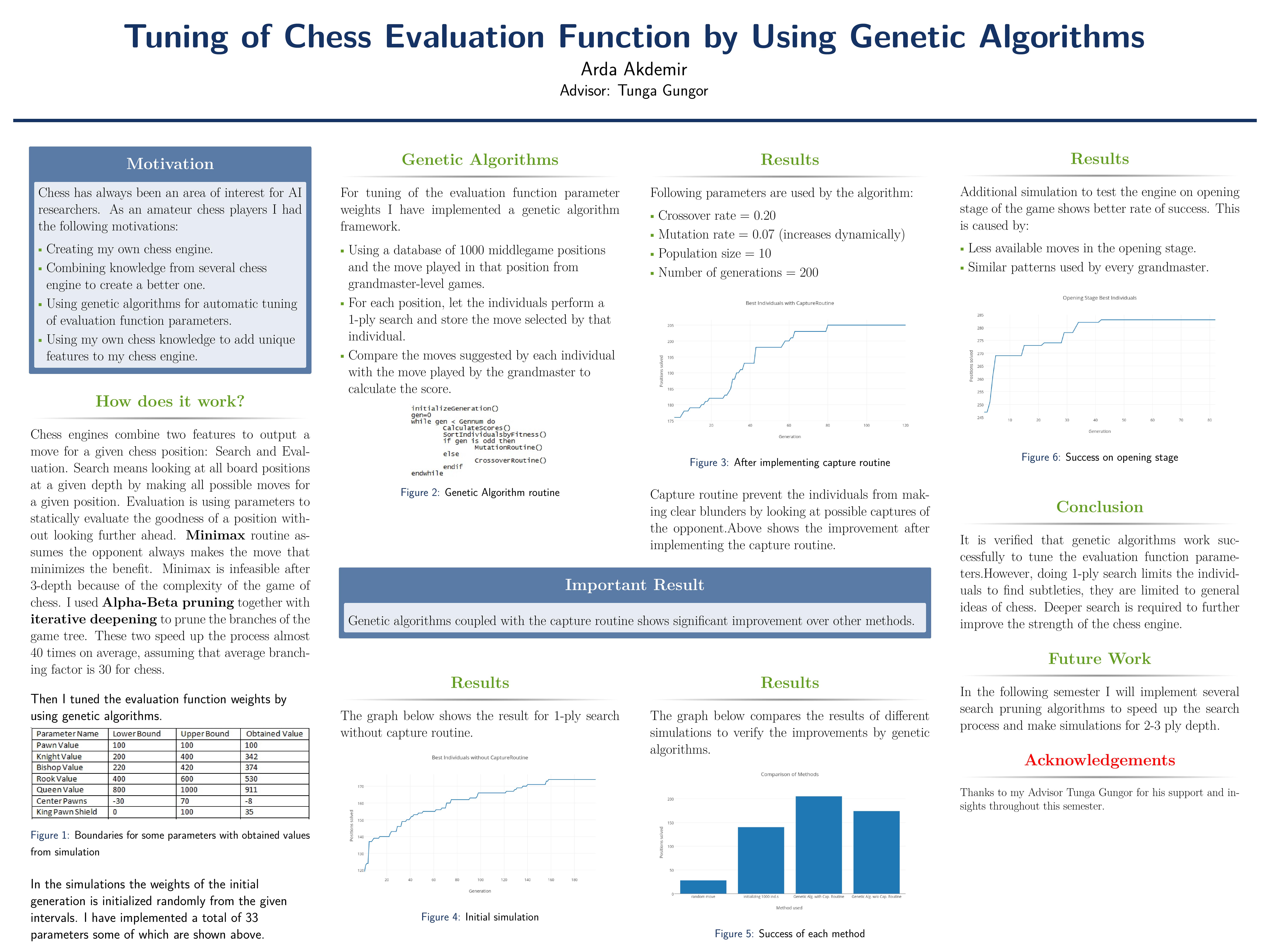Adaptive Tuning of Chess Evaluation Function by Using Genetic Algorithms
For the last two decades Chess has been a trending topic among Artificial Intelligence researchers.

For the last two decades Chess has been a trending topic among Artificial Intelligence researchers. Since chess is considered to be an act of pure intelligence and grandmaster have been considered as possessing the most complex intelligence in the world, researchers in the earlier times of the AI focused on creating strong chess playing programs. Claude Shannon and Alan Turing made serious contributions for building the foundations of chess engines. Most of the effort in the last two decades however focused primarily on creating stronger chess programs without considering the cognitively plausible aspects of a human chess player. In this work, We demonstrate the use of genetic algorithms for tuning the evaluation function of a chess program. This work is unique in the sense that other studies on this area used already working chess programs and they integrated an evolution routine for tuning the parameters. We create a chess engine from scratch and implement an evolutionary framework for tuning the parameters.Several previous studies are combined to come up with a new genetic algorithm framework that fits well with the domain. Grandmaster games are used as training data of the program in a 1-ply search.Individuals ranked according to the number of correctly foundd moves made by grandmasters. In this sense, our program tries to mimic the grandmaster with 1-ply search. Our results suggest that significant progress has been made by using genetic algorithms. Different experiments with different settings has been made and the results are compared. Future work will focus on implementing search algorithms and making these simulations with deeper search to obtain more accurate results.